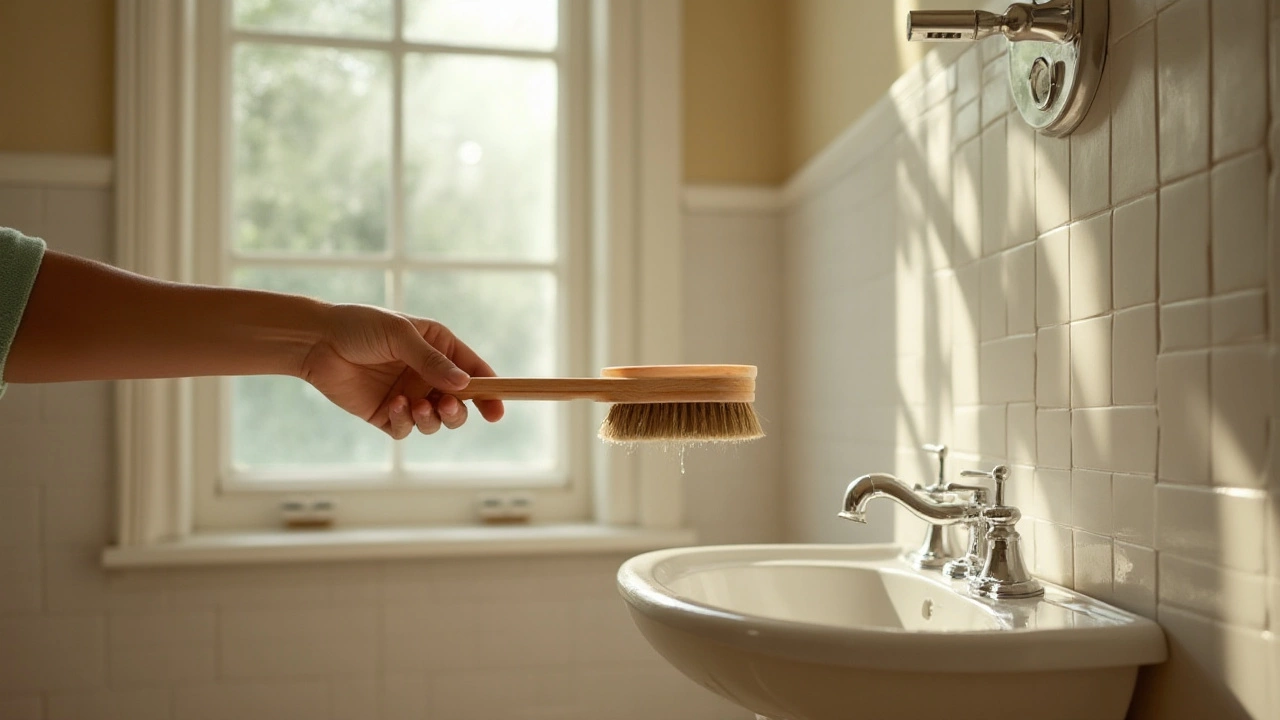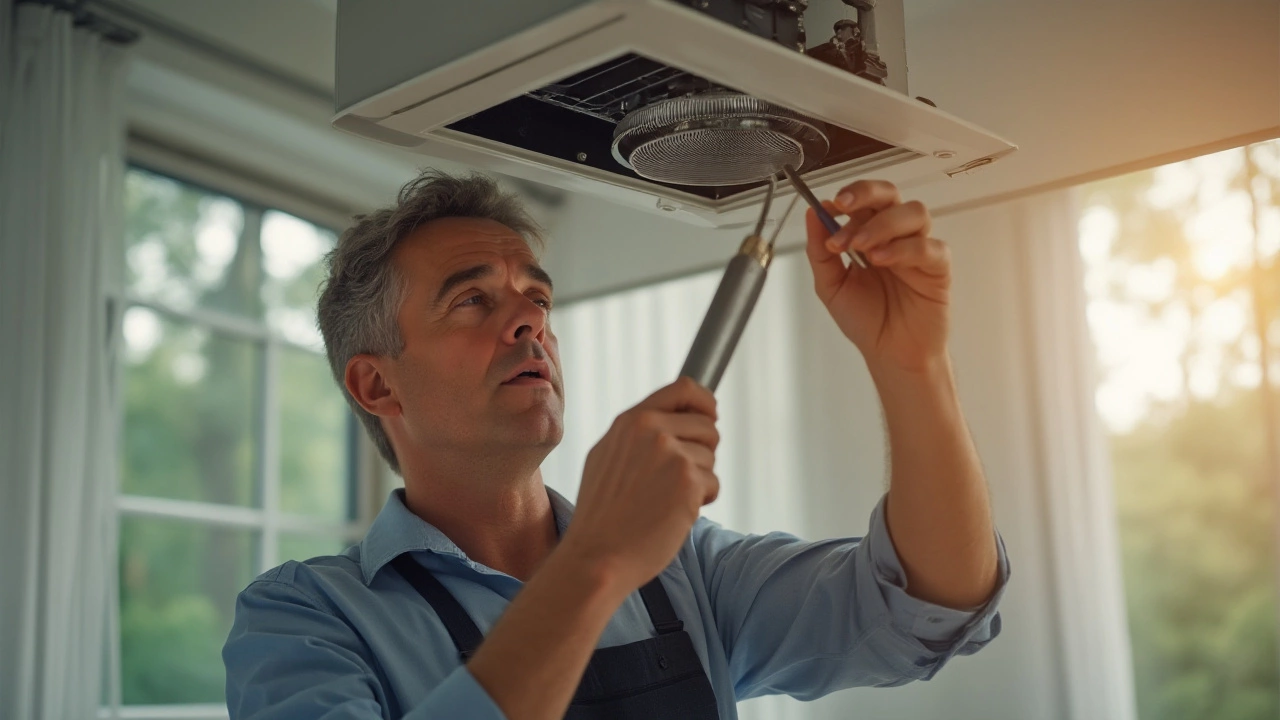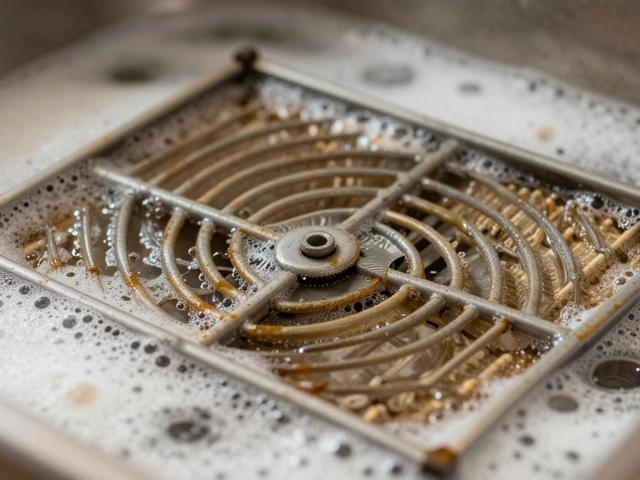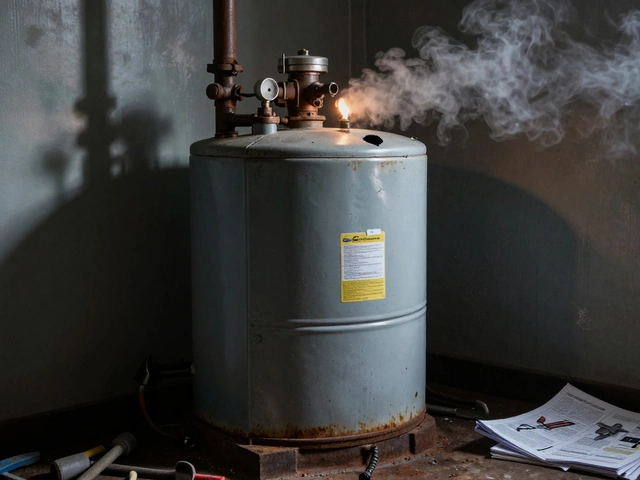Extractor fans are those unsung heroes in our homes that quietly suck away moisture, grime, and cooking smells, creating a breathable and fresh environment. Yet, we often forget about their existence until something goes off. The truth is, like any other appliance, extractor fans demand a bit of TLC every so often to continue performing efficiently.
Regular maintenance isn’t just about keeping things running; it’s about avoiding those tricky situations where an extractor fan decides to stop working right in the middle of meal prep or when guests are about to arrive. Keeping an eye out for telltale signs and understanding the basics of upkeep can extend the life of your fan significantly.
This article will guide you through the essentials of maintaining your trusty extractor fan, when to perform simple cleaning tasks, and how to spot the signals that it might need a bit more than a dusting. Don't let minor issues turn into material concerns. Instead, learn how to manage and prevent them with a few handy tips and tricks.
- Understanding Extractor Fans' Role
- Signs Your Extractor Fan Needs Attention
- Routine Maintenance Practices
- When to Call a Professional
Understanding Extractor Fans' Role
The extractor fan may not be the centerpiece of any room, but it holds an indispensable place in maintaining our living spaces. Often installed in kitchens and bathrooms, these fans play a vital role in ensuring that air quality remains high and humidity levels are kept in check. By removing unwanted odors, moisture, and airborne particles, extractor fans help prevent the growth of mold and decrease the chances of structural damage. They work tirelessly at maintaining a healthy environment, though it's easy to overlook their contributions.
At the heart of their operation, extractor fans employ a simple yet effective mechanism to clear the air. Typically, they consist of an electric motor attached to a fan blade, housed in a casing that directs airflow. When you switch on the fan, the blades draw in air, channeling it out of the room faster than static air movement. This capability is particularly crucial in areas prone to moisture accumulation, like kitchens where boiling pots or steaming ovens can spike humidity levels. In bathrooms, too, long hot showers can stoke up steamy problems leading to condensation.
An intriguing fact to consider is that extractor fans can help save on energy costs. By expelling warm, humid air during hotter months, they reduce the load on air conditioning systems, indirectly supporting energy efficiency. Additionally, these fans add to the longevity of the home itself. By fighting moisture at its source, they act as a safeguarding mechanism against the deterioration of paint and wallpaper and also defense against the onset of pesky mold issues. The benefits they deliver steadfastly outweigh the minor noise or occasional maintenance they require.
The Home Ventilating Institute states, "Proper ventilation is vital for our health and homes. It reduces indoor pollution levels and promotes better indoor air quality."
Not all extractor fans are built the same. The variety is significant, with each type serving a specific need and functioning best under different conditions. Axial fans, for instance, are usually installed directly in windows or walls and are suitable for situations where air needs to be moved directly outside. On the other hand, centrifugal fans are more suited for longer duct runs due to their ability to push air over longer distances. This variety is what allows homeowners to choose which system best suits their specific requirements, balancing efficiency with practicality.
In this world of increasing environmental awareness, the future of extractor fans encompasses smart technology and energy-efficient innovations. Advanced systems with sensors that automatically react to changes in humidity levels or air quality are becoming increasingly popular. Some models can even be controlled remotely, integrating with home automation systems. These features not only enhance convenience but also promote an elevated level of air quality management. A commitment to maintaining these fans amplifies their role as not just utilities but as key players in sustainable living.

Signs Your Extractor Fan Needs Attention
Extractor fans, often overlooked in the hustle and bustle of daily life, can begin to falter without timely attention. One of the first signs that an extractor fan isn't operating at its best is unusual noise. This typically subtle appliance should run smoothly, so if it's starting to sound like a jet engine or is making odd rattling noises, it's time to investigate. These sounds can indicate anything from loose components to more severe motor issues. Addressing these noises early can prevent more significant problems down the line, which could otherwise lead to costly repairs or even a complete replacement.
Another key indicator is a noticeable decline in air quality, as the primary job of an extractor fan is to improve ventilation by removing odors and humidity. If you find that your kitchen smoke lingers longer than usual after cooking or your bathroom mirrors fog up excessively despite the fan being on, it might not be working efficiently. A clogged fan blade or dirty filter could be to blame, reducing airflow and effectiveness over time. Regular cleaning can significantly enhance your fan's functionality and help maintain a fresh and healthy environment.
Additionally, consider the presence of persistent odors that are not being eliminated. Cooking smells or bathroom odors should vanish swiftly with a functioning extractor. If scents stubbornly hang around despite running the fan for an extended period, it may suggest that buildup inside is obstructing performance. In fact, studies have shown that improperly maintained fans can circulate bacteria and allergens, which can be detrimental to health.
Maintenance of extractor fans isn’t just about cleaning; it’s also about understanding the technology and recognizing when professional intervention is necessary. If you find yourself inadvertently ignoring these signs due to unfamiliarity, know that you're not alone. A survey suggests that over 60% of homeowners aren't aware of the maintenance their extractor fans require. Let these figures serve as a reminder that staying informed can save money and improve home conditions.
"Keeping your home ventilated is essential for health and safety, not just comfort," says Mark Reed, an HVAC specialist with over two decades of experience. "Neglecting such a simple maintenance task can lead to bigger issues, which are usually preventable if caught early."
There's also the telltale sign of visible dirt or grease buildup on the exterior grille or casing. It's often easier to spot dirt accumulating on the fan's external parts in kitchen environments, particularly after extensive cooking sessions. This visible grime can choke up the mechanisms inside if not addressed regularly, reducing the overall functional efficiency of the fan. It’s important not just for performance but also for hygiene. Imagine the kind of unwanted inhabitants your fan might be accumulating inside all that grime - a regular clean-up can make a massive difference.

Routine Maintenance Practices
Keeping your extractor fan in top shape isn’t as daunting as it might seem. Establishing a regular maintenance routine ensures your fan works effectively and lasts longer. First things first, always turn off the power before starting any cleaning or maintenance to prevent accidents. Over time, extractor fans can collect dust, grease, and other particles that interfere with their efficiency. Dust the exterior casing and clean the blades and filters regularly to prevent buildup. A soft cloth, warm soapy water, and a mild detergent usually do the trick for most fans. If your fan is equipped with a detachable filter, check the user manual for guidelines on removing and washing it. Some filters can be reused, while others might need replacing after a certain period.
One often overlooked aspect of maintenance is checking the fan's ductwork. Obstructions can reduce airflow and make the fan work harder than necessary. Inspecting and cleaning ducts every few months can prevent blockages that compromise performance. Pay attention to unusual noises; grinding or rattling sounds might signify a more serious problem requiring professional attention. It’s also wise to verify that the fan’s exhaust vent is clear and free from debris or obstructions outside your home.
The performance of your fan can be affected by various factors, including its location and frequency of use. A kitchen fan that assists with cooking might require more frequent maintenance compared to fans in other parts of the house due to exposure to grease and food particles. For these situations, you might want to consider a heavier duty cleaning product designed to cut through tougher stains and grease.
"Regular maintenance is a key factor in ensuring your ventilation systems remain efficient and prolong their functional life," says Jane Smith, a leading authority in home ventilation systems.
Setting a maintenance schedule, like once every three months, can significantly reduce the chances of running into problems. Placing a reminder on your calendar can help you stay on track with your maintenance regimen. An interesting fact is that properly maintained extractor fans can reduce energy consumption — a clean and efficient fan needs less power to operate effectively. In the long run, a little care goes a long way in not only extending the service life of your fan but also in maintaining a quality indoor environment. By incorporating these practices, you not just save money on costly repairs but also contribute towards a more sustainable energy use in your home.

When to Call a Professional
There comes a time in the life of every extractor fan when even the heartiest maintenance efforts aren't enough to prevent the need for professional help. But how can you recognize those moments? One of the first signs your fan needs expert intervention is when you hear strange noises, such as grinding or rattling, which could indicate worn-out bearings or other mechanical issues. Attempting to fix these on your own might lead to further damage, turning a minor repair into a costly replacement.
Another telltale sign is persistent odor or smoke lingering longer than usual, hinting that the fan isn’t effectively removing them. This could be due to a malfunctioning motor or clogged ductwork far beyond the reach of simple cleaning. Additionally, if you notice a significant decrease in suction power, it might be time for a professional assessment. Often, it's not just accumulated dust but potentially a more complex blockage in the venting system or a broken fan blade that only a professional can safely address.
Electrical Concerns and Safety
Safety should always be your top priority. If your extractor fan is exhibiting electrical issues, like frequent short-circuiting or causing your circuit breaker to trip, these are clear indicators to call an electrician. Electrical problems can pose a serious risk of fire or shock. As tempting as it may be to tackle the problem yourself, such situations require expert knowledge and tools to ensure your home remains safe and compliant with local codes. Benjamin Franklin, a pioneer in understanding electricity, might humorously remind us to "leave those charged moments to those with the know-how."Sometimes, more subtle signs like dust accumulation on only one part of the room or unexpected heat around the unit can also point to problems. These often go unnoticed but can affect your indoor environment and energy costs. By hiring an experienced technician, you can have a thorough inspection done, pinpoint underlying problems, and receive advice on potential upgrades or replacements if needed. Remember, regular professional check-ups can enhance the longevity of your fan and ensure it performs its best all year round.
Routine Inspections and Expert Tips
Many service companies recommend setting a professional maintenance schedule. Depending on how heavily your fans are used—like those in busy kitchens or large households—having them evaluated at least once or twice a year could prevent many of the more significant issues from developing. This proactive approach often includes detailed cleaning of the motor, checking the balance of the fan blades, and inspecting the ductwork for leaks or tears, which are common in older systems.When choosing a professional service, seek out certified experts with experience specific to ventilation systems. While unlicensed technicians might offer cheaper rates, their lack of accreditation could lead to inadequate services that void warranties or lead to more frequent repairs. Asking for credentials, customer reviews, or even recommendations from friends or family can go a long way in ensuring you receive quality service. As they say about home maintenance, "an ounce of prevention is worth a pound of cure." Taking professional advice seriously can save not only money but also provide peace of mind knowing your kitchen ventilation system is in top shape.





